Clarion is an American six-week workshop for aspiring science fiction and fantasy writers. Originally an outgrowth of Damon Knight's and Kate Wilhelm's Milford Writers' Conference, held at their home in Milford, Pennsylvania, United States, it was founded in 1968 by Robin Scott Wilson at Clarion State College in Pennsylvania. Knight and Wilhelm were among the first teachers at the workshop.
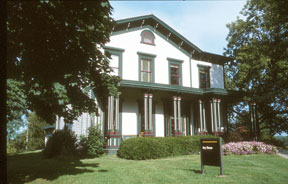
The Iowa Writers' Workshop, at the University of Iowa, is a graduate-level creative writing program. At 87 years, it is the oldest writing program offering a Master of Fine Arts (MFA) degree in the United States. Its acceptance rate is between 2.7% and 3.7%. On the university's behalf, the workshop administers the Truman Capote Award for Literary Criticism and the Iowa Short Fiction Award.
Creative writing is any writing that goes outside the bounds of normal professional, journalistic, academic, or technical forms of literature, typically identified by an emphasis on narrative craft, character development, and the use of literary tropes or with various traditions of poetry and poetics. Due to the looseness of the definition, it is possible for writing such as feature stories to be considered creative writing, even though it falls under journalism, because the content of features is specifically focused on narrative and character development. Both fictional and non-fictional works fall into this category, including such forms as novels, biographies, short stories, and poems. In the academic setting, creative writing is typically separated into fiction and poetry classes, with a focus on writing in an original style, as opposed to imitating pre-existing genres such as crime or horror. Writing for the screen and stage—screenwriting and playwriting—are often taught separately, but fit under the creative writing category as well.

Vonda Neel McIntyre was an American science fiction writer and biologist.

Kelly Link is an American editor and writer. Mainly known as an author of short stories, she published her first novel The Book of Love in 2024. While some of her fiction falls more clearly within genre categories, many of her stories might be described as slipstream or magic realism: a combination of science fiction, fantasy, horror, mystery, and realism. Among other honors, she has won a Hugo award, three Nebula awards, and a World Fantasy Award for her fiction, and she was one of the recipients of the 2018 MacArthur "Genius" Grant.

Kelley Eskridge is an American writer of fiction, non-fiction and screenplays. Her work is generally regarded as speculative fiction and is associated with the more literary edge of the category, as well as with the category of slipstream fiction.
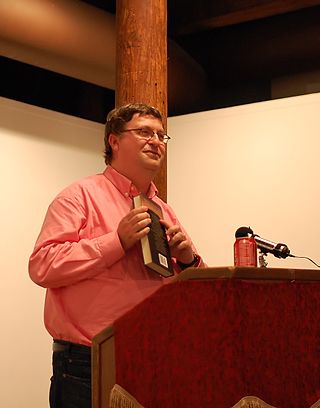
Andy Duncan is an American science fiction and fantasy writer whose work frequently deals with Southern U.S. themes.

Leslie What is a Nebula Award-winning writer of speculative, literary fiction and nonfiction with three books and nearly 100 short stories and essays to her credit. An attendee of Clarion Workshop, she lives in Oregon. She won the Nebula in 1999 for the short story, The Cost of Doing Business, and in 2005, she was a finalist for the Nebula, along with Eileen Gunn, for their co-written novelette, Nirvana High.

The Kelly Writers House is a mixed-use programming and community space on the campus of the University of Pennsylvania in Philadelphia.
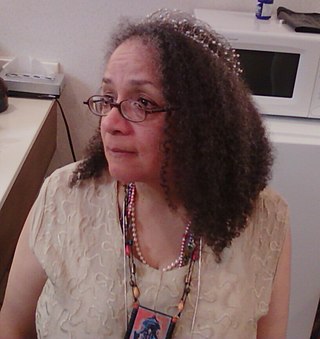
Nisi Shawl is an African-American writer, editor, and journalist. They are best known as an author of science fiction and fantasy short stories who writes and teaches about how fantastic fiction might reflect real-world diversity of gender, sexual orientation, race, colonialism, physical ability, age, and other sociocultural factors.

Black science fiction or black speculative fiction is an umbrella term that covers a variety of activities within the science fiction, fantasy, and horror genres where people of the African diaspora take part or are depicted. Some of its defining characteristics include a critique of the social structures leading to black oppression paired with an investment in social change. Black science fiction is "fed by technology but not led by it." This means that black science fiction often explores with human engagement with technology instead of technology as an innate good.
Dark Matter is an anthology series of science fiction, fantasy, and horror stories and essays produced by people of African descent. The editor of the series is Sheree Thomas. The first book in the series, Dark Matter: A Century of Speculative Fiction from the African Diaspora (2000), won the 2001 World Fantasy Award for Best Anthology. The second book in the Dark Matter series, Dark Matter: Reading the Bones (2004), won the World Fantasy Award for Best Anthology in 2005. A forthcoming third book in the series is tentatively named Dark Matter: Africa Rising. This was finally published at the end of 2022 under the title Africa Risen: A New Era of Speculative Fiction, from Tor Books.

Bloodchild and Other Stories is the only collection of science fiction stories and essays written by American writer Octavia E. Butler. Each story and essay features an afterword by Butler. "Bloodchild", the title story, won the Hugo Award and Nebula Award.

K. Tempest Bradford is an African-American science fiction and fantasy author and editor. She was a non-fiction and managing editor with Fantasy Magazine from 2007 to 2009 and has edited fiction for Peridot Books, The Fortean Bureau, and Sybil's Garage. She is the author of Ruby Finley vs. the Interstellar Invasion, her debut middle grade novel published in 2022, which won the Andre Norton Award in 2023.
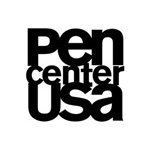
PEN Center USA was a branch of PEN, an international literary and human rights organization. It was one of two PEN International Centers in the United States, the other being the PEN America in New York City. On March 1, 2018, PEN Center USA unified under the PEN America umbrella as the PEN America Los Angeles office. PEN Center USA was founded in 1943 and incorporated as a nonprofit association in 1981. Much of PEN Center USA's programming continues out of the PEN America Los Angeles office, including the Emerging Voices Fellowship, PEN In the Community writing residencies and guest speaker program, and the PEN Presents conversation series.
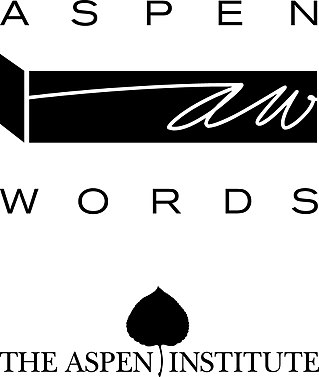
Aspen Summer Words (ASW) is a festival of words, stories and ideas held each June in Aspen, Colorado. It is the flagship program of Aspen Words, a literary arts non-profit and program of the Aspen Institute. Until 2015, Aspen Words was known as the Aspen Writers' Foundation.












